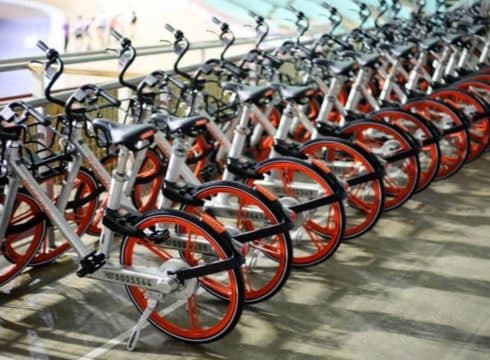On August 7, Delhi chief minister Arvind Kejriwal announced the launch of the electric vehicle policy
For ecycles, the govt looks to subsidise 25% of the cost of the cycle (up to INR 5.5K) and give a fixed additional incentive of INR 2K on the first 10K recycles
Higher incentives to be offered for ‘cargo ecycles’, which would be used for last-mile delivery
Inc42 Daily Brief
Stay Ahead With Daily News & Analysis on India’s Tech & Startup Economy
Delhi government’s ambitious Electric Vehicles policy will now include the promotion of ecycles. The decision is being taken as part of the government’s draft proposal under the Delhi Electric Vehicle Policy 2020, which was notified in August 2020.
Under the policy, the Arvind Kejriwal-led government plans to have 25% electric vehicles on road by 2024.
Besides offering subsidies of up to INR 30K on two-wheelers and up to INR 1.5 lakh for cars, the government plans to subsidise 25% of the cost of the cycle. This is an amount of INR 5.5K alongside a fixed additional incentive of INR 2,000 will be offered for the first 10K ecycles sold.
“This is a different segment that is now being introduced. Worldwide the maximum number of evehicles one can see are ecycles,” transport minister Kailash Gahlot told TOI adding that ecycles can be pedalled as normal cycles and can be used by short-distance travellers.
Further, there will be higher incentives for ‘cargo ecycles’, which would be used for last-mile delivery. A purchase incentive of 33% of the price, up to INR 15K, per cargo ecycle will be given to buyers of the first 10K cargo ecycles.
Under its new EV policy, the Delhi government had exempted road tax for battery-operated vehicles. It is expected that the government will further waive the registration fees for EVs as well, as the measure was outlined in its EV policy announced in August.
EVs Becoming A Necessity Than Ever Before
According to a report by the Society of Manufacturers of Electric Vehicles, there has been a 37.5% rise in the sale of EVs in India in recent years. In a bid to achieve 100% electric vehicles by 2030, the government under the leadership of PM Narendra Modi announced tax reduction on electric vehicles to around 12% with the roll-out of GST.
At present, India is going through its green growth pangs. According to a McKinsey&Company report, the electric vehicle adoption rate is less than 1%. However, the government has targeted 30% electric vehicle adoption by 2030. But the focus of this plan is powered primarily by electrification of two-wheeler, three-wheeler and commercial vehicles.
According to the Society of Manufacturers of Electric Vehicles (SMEV), India sold 1.52 Lakh electric two-wheelers and 90K electric rickshaws in FY2020.
{{#name}}{{name}}{{/name}}{{^name}}-{{/name}}
{{#description}}{{description}}...{{/description}}{{^description}}-{{/description}}
Note: We at Inc42 take our ethics very seriously. More information about it can be found here.


